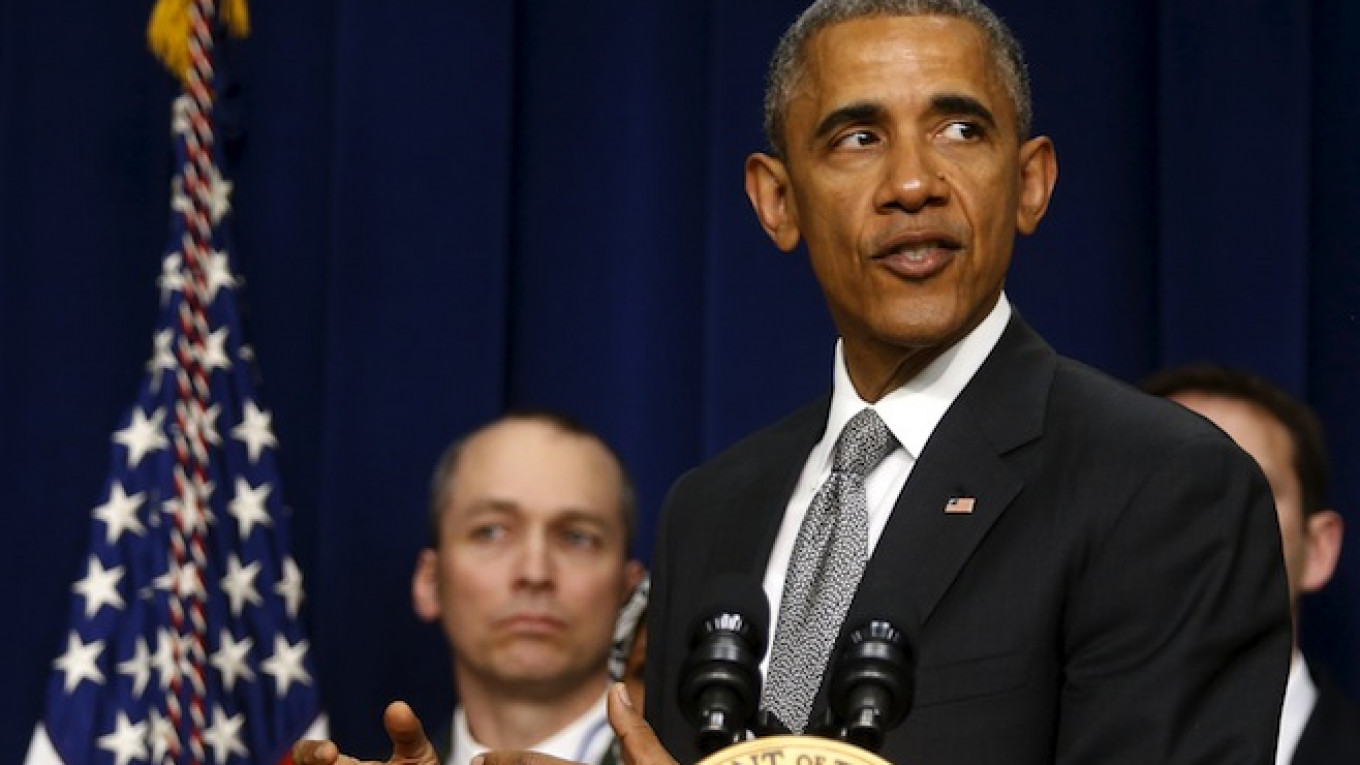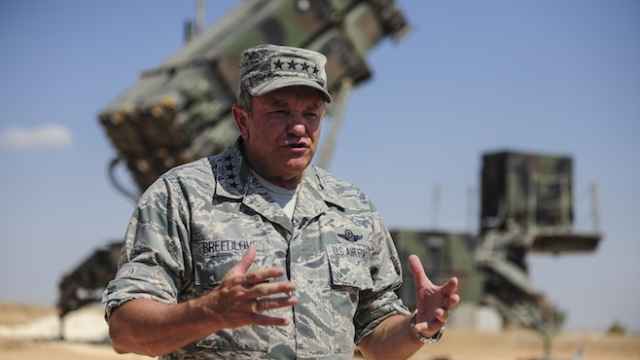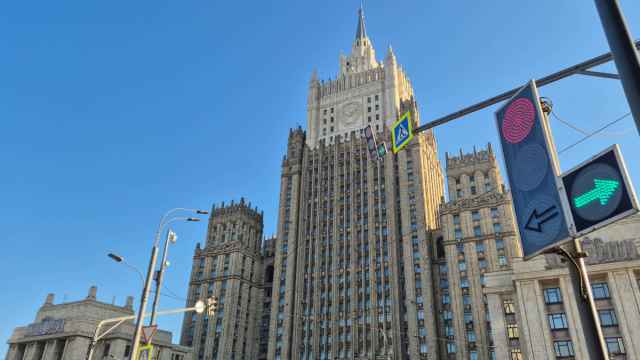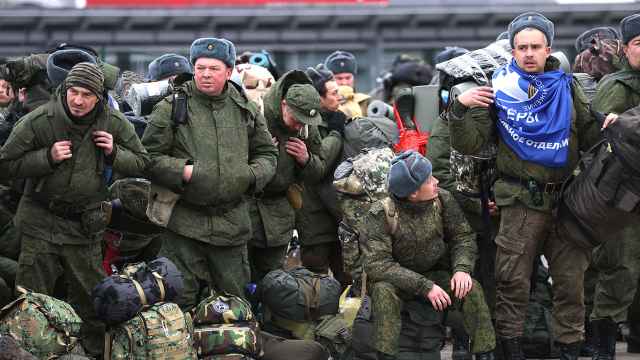Top Russian officials accused the United States on Thursday of seeking political and military dominance in the world and sought to put blame on the West for international security crises, including the conflict in east Ukraine.
Evoking Cold War-style rhetoric, Russian Defense Minister Sergei Shoigu said a drive by the United States and its allies to bring Kiev closer to the West was a threat to Moscow and had forced it to react.
"The United States and its allies have crossed all possible lines in their drive to bring Kiev into their orbit. That could not have failed to trigger our reaction," he told an annual security conference in Moscow.
Echoing his comments, General Valery Gerasimov, chief of the General Staff of the Russian Armed Forces, told the meeting: "Considering themselves the winners of the Cold War, the United States decided to reshape the world to fit its needs.
"Aiming at complete dominance, Washington stopped taking into account the interests of other countries and respect international law."
Russia annexed Crimea from Ukraine last March following what it says was an "unconstitutional coup" in which street protests toppled a Moscow-allied Ukrainian president in Kiev after he ditched a deal to move closer to the European Union.
Separatist unrest then spread to eastern, Russian-speaking regions of Ukraine where fighting between Kiev's troops and pro-Russian rebels killed more than 6,000 people. The West says Moscow drives the rebellion, sends serving Russian troops there and provides the rebels with arms, training and intelligence.
President Vladimir Putin on Thursday repeated Moscow's denial, saying Russian military forces were not in Ukraine and denying that it was providing troops and support for pro-Russian rebels in eastern Ukraine.
Shoigu blamed the violence on Kiev and sought to dismiss Western criticism that Russia was forcibly remaking European borders, pointing to Western military involvement in Serbia, Iraq and Libya.
Russian Foreign Minister Sergei Lavrov told the conference, attended by envoys from China, Iran, Pakistan and some of Russia's allies, that Kiev had to deliver on its obligations under peace agreements reached in Minsk to "safeguard unity of the Ukrainian state."
Both said Moscow saw the development of the U.S.-led missile shield in Europe as tilting the post-war balance of power and a threat to its strategic nuclear deterrent capability. Shoigu said Moscow was taking steps to counteract that.
Gerasimov told delegates the eastward expansion of NATO posed another major threat to Russia and criticized the alliance for boosting military exercises involving eastern members.
NATO says intensified drills are aimed at reassuring eastern members worried by Moscow.
"It's clear that measures taken by NATO to strengthen the bloc and increase its military capabilities are far from being defensive," he said.
A Message from The Moscow Times:
Dear readers,
We are facing unprecedented challenges. Russia's Prosecutor General's Office has designated The Moscow Times as an "undesirable" organization, criminalizing our work and putting our staff at risk of prosecution. This follows our earlier unjust labeling as a "foreign agent."
These actions are direct attempts to silence independent journalism in Russia. The authorities claim our work "discredits the decisions of the Russian leadership." We see things differently: we strive to provide accurate, unbiased reporting on Russia.
We, the journalists of The Moscow Times, refuse to be silenced. But to continue our work, we need your help.
Your support, no matter how small, makes a world of difference. If you can, please support us monthly starting from just $2. It's quick to set up, and every contribution makes a significant impact.
By supporting The Moscow Times, you're defending open, independent journalism in the face of repression. Thank you for standing with us.
Remind me later.






